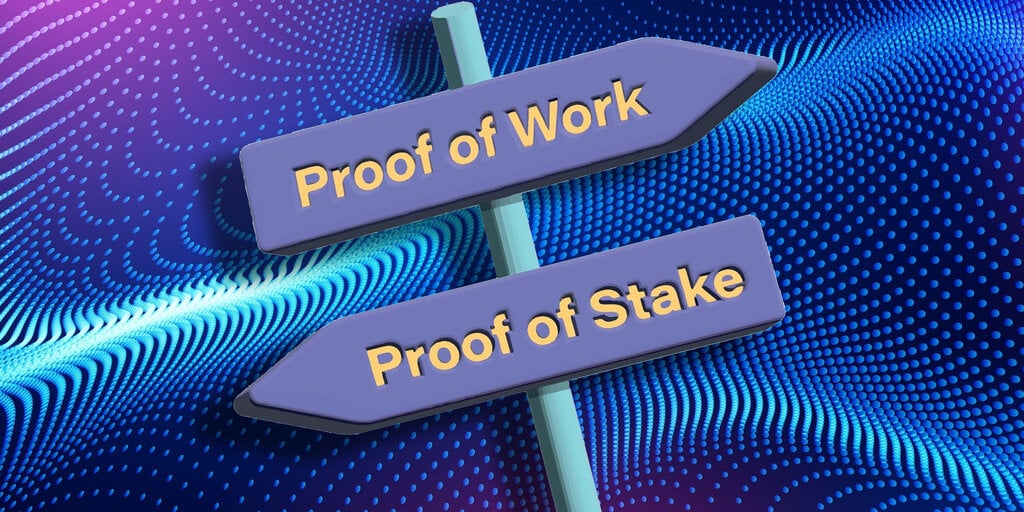As the onslaught from the SEC against crypto institutions like Binance and Coinbase continues, one distinction among the agency’s targets has piqued the curiosity of industry watchers. Namely: Proof-of-Work (PoW) versus Proof-of-Stake (PoS) tokens.
While the Securities and Exchange Commission has brought charges against two of the largest cryptocurrency exchanges for unregistered securities offerings, they have also publicly declared which digital assets are in their sights, and which aren’t.
“I think PoW coins are largely avoided because there is no central issuer,” Managing Director of Swan Bitcoin Steven Lubka told Decrypt. He explained that “generally speaking, PoW is an open mechanism and lacks a central issuer, unlike PoS coins.”
According to the lawsuit against Coinbase, the SEC considers the following to be securities: Solana (SOL), Cardano (ADA), Polygon (MATIC), Filecoin (FIL) and Sandbox (SAND) among several others.
What do they have in common? They are Proof-of-Stake coins, which refers to blockchains that require block validators to lock-up tokens in order to validate blocks.
Barry Silbert, founder and CEO of Digital Currency Group—which is also in the midst of legal trials and tribulations—tweeted that there are “no Proof of Work tokens in any of the lawsuits, I believe (BTC, LTC, XMR, ETC, ZEC, etc.)”.
Although neither Gensler nor his team has been clear as to why they are focusing on PoS coins (although he has been especially elusive when it comes to Ethereum), the lack of Proof-of-Work tokens in these lawsuits is also baffling.
Proof-of-Work refers to the mining process which maintains networks such as Bitcoin. It requires hardware equipment and burning a kernel of energy to validate blocks, receiving rewards for that effort.
Bitcoin (BTC) isn’t the only cryptocurrency that uses PoW. Monero (XMR), Litecoin (LTC), Ethereum Classic (ETC) and Dogecoin (DOGE) are a few that also secure their networks in this manner, and all are absent from the Gensler-led lawsuits.
Despite Gensler saying that “Bitcoin is the only one I am willing to call a commodity” in a CNBC interview last year, the reasons for keeping these types of tokens outside the law remain unclear.
Vineeth Bhuvanagiri, Managing Director of Emurgo—a founding entity of Cardano—told Decrypt “the SEC’s reasoning could be rooted more in the popularity of a particular coin.” His thoughts were echoed by Brent Xu, CEO of Web3 bond-market platform, Umee, who added “there’s too little public knowledge of the reasoning and the rationale to explain this apparent trend.”
It’s public knowledge that the head of the SEC isn’t a fan of cryptocurrencies. Unless the project is led by friends, he seems adamant on clamping down certain Proof-of-Stake coins.
It might be a bit early to call a victory for Proof-of-Work coins given this week’s regulatory shakedown, however. When it comes to Chairman Gensler and the U.S. government, it’s smart to expect the unexpected.
Stay on top of crypto news, get daily updates in your inbox.
Source: https://decrypt.co/143760/why-has-the-sec-not-labeled-any-proof-of-work-asset-as-a-security



